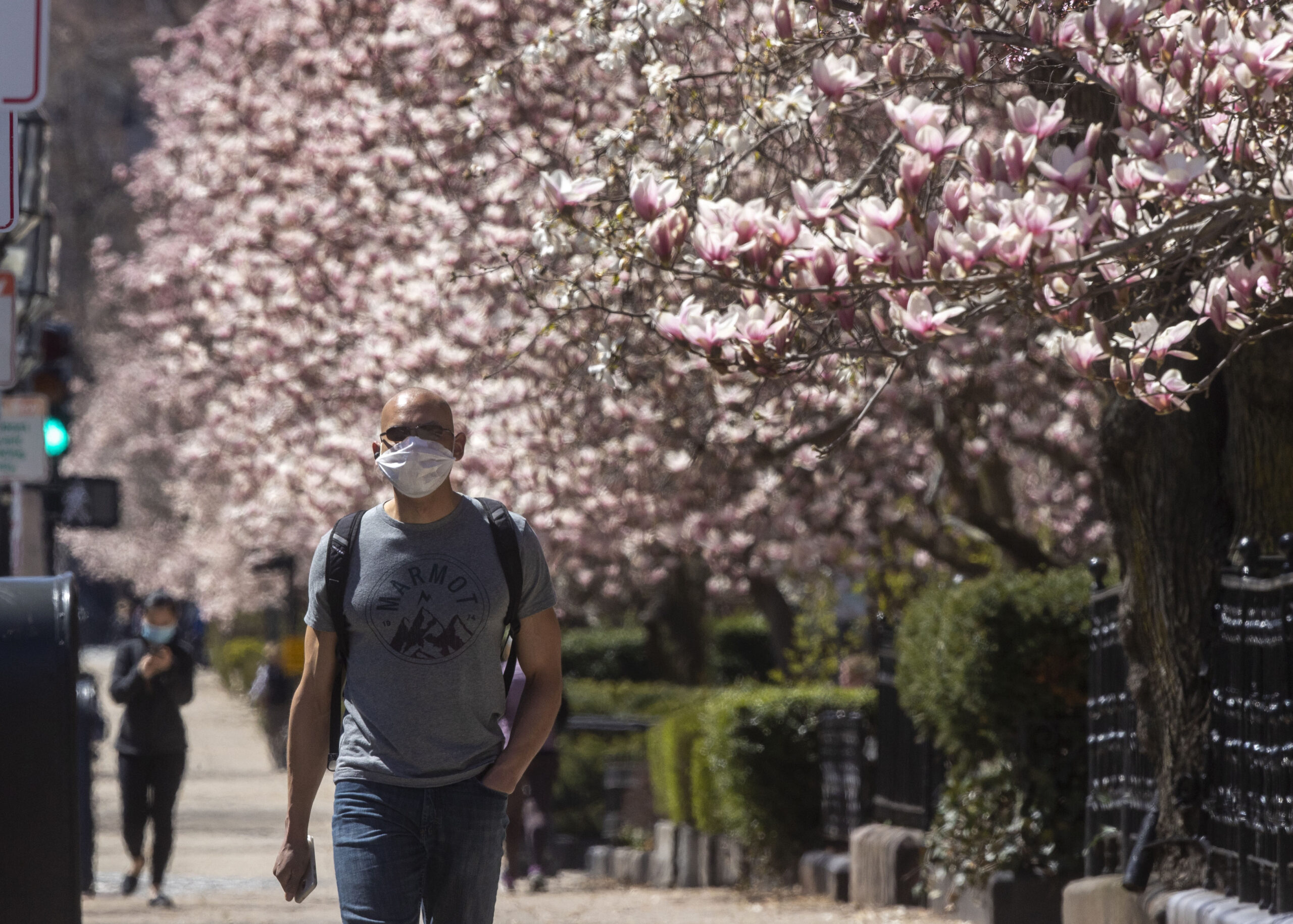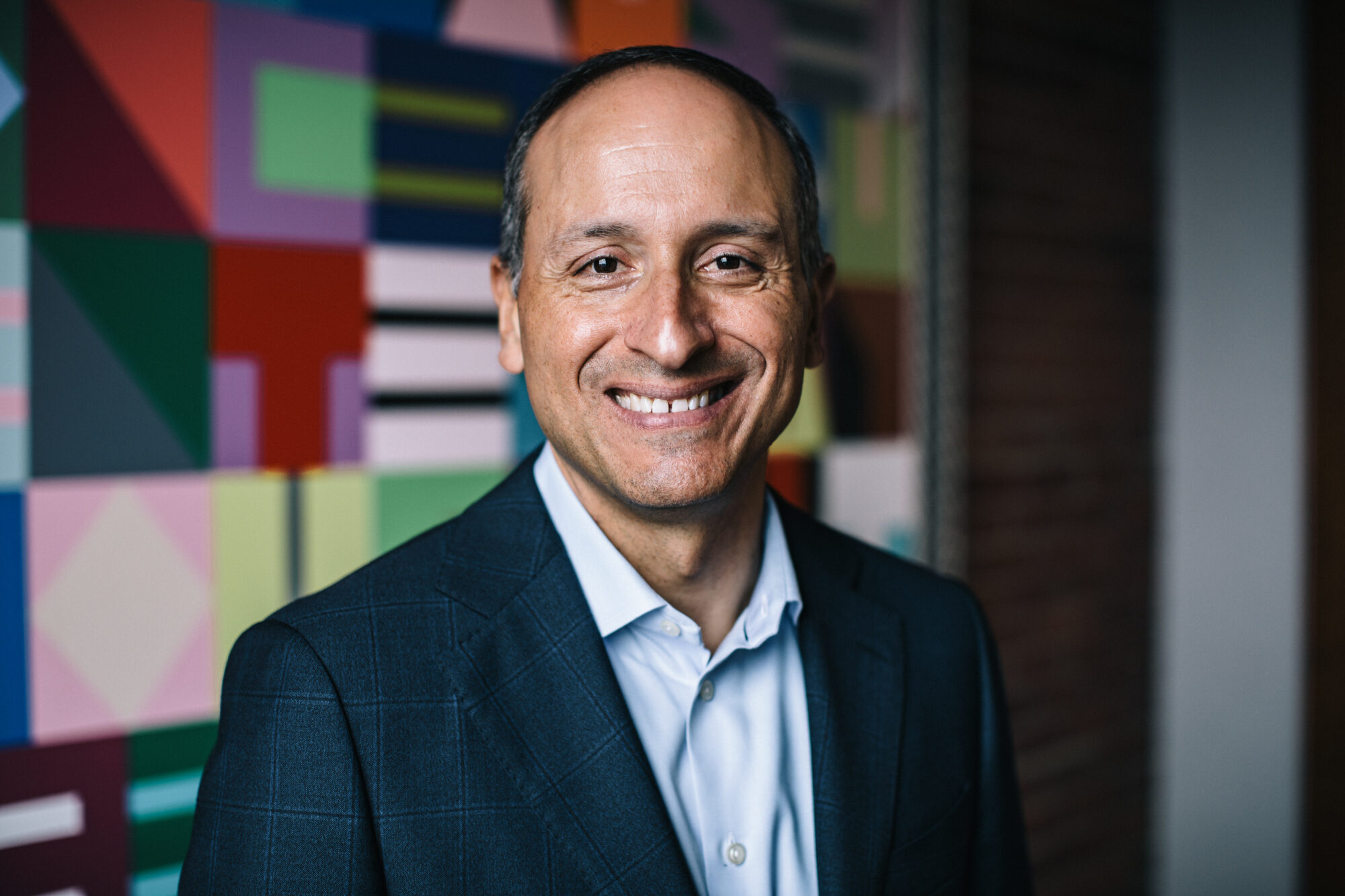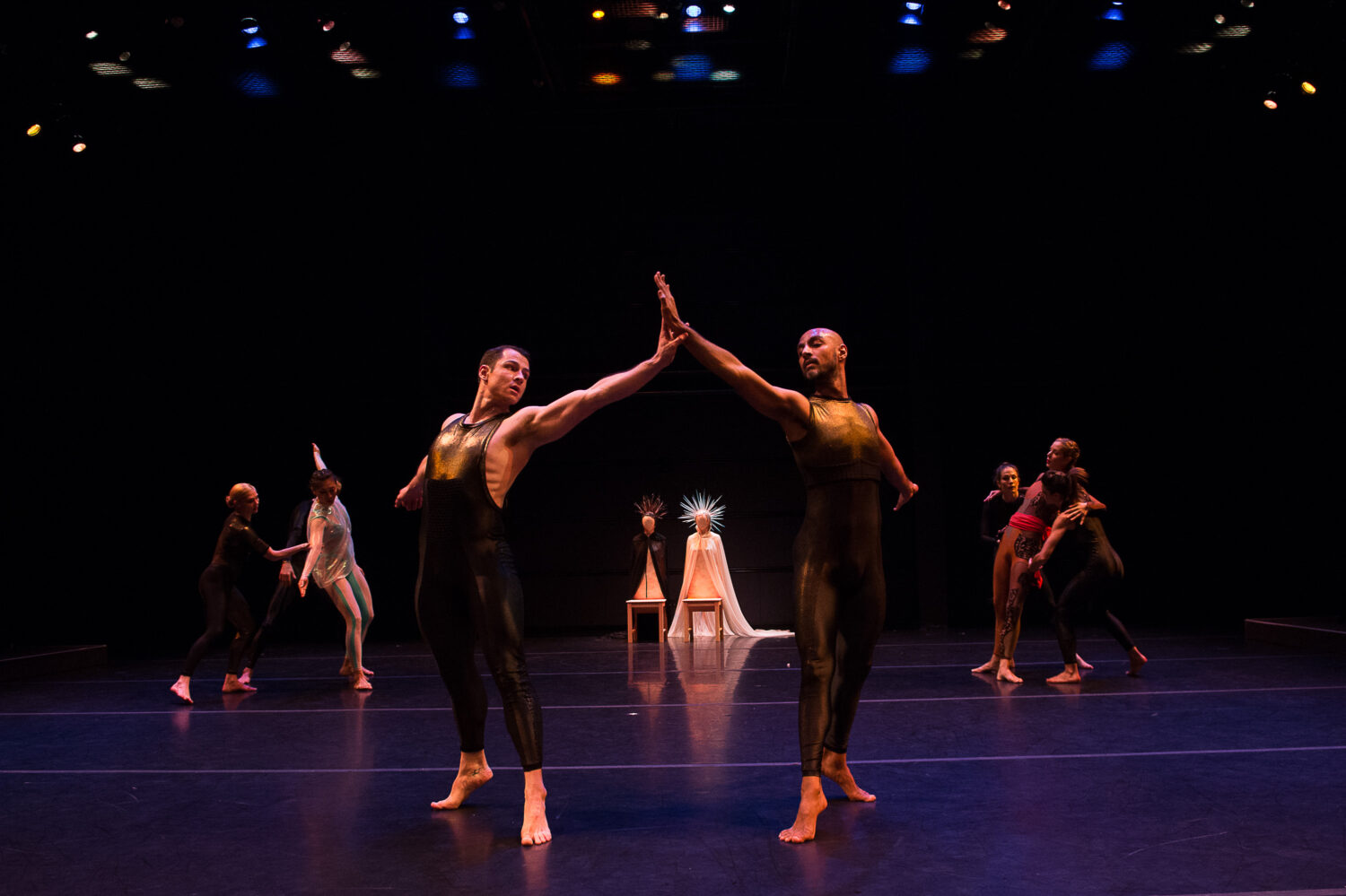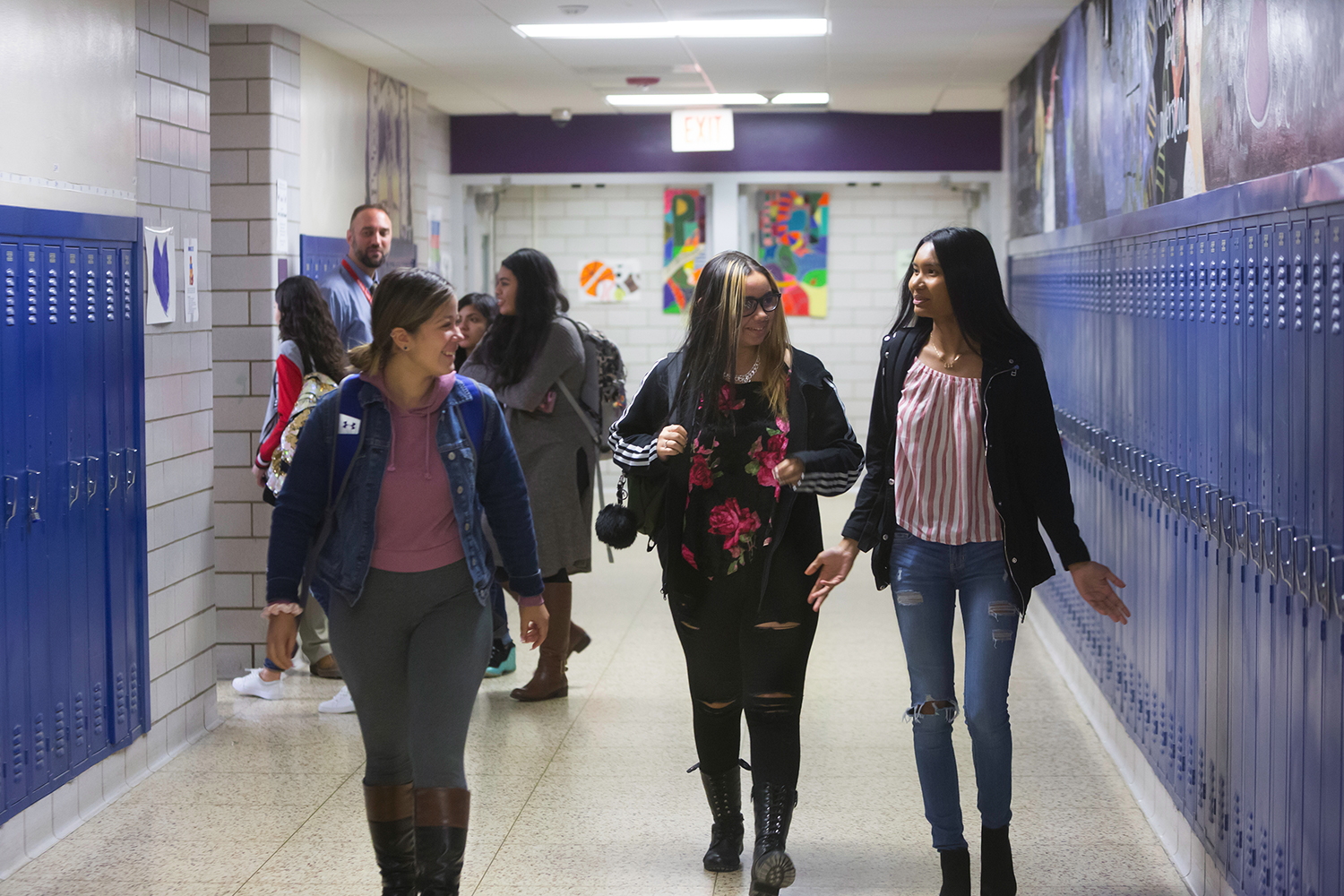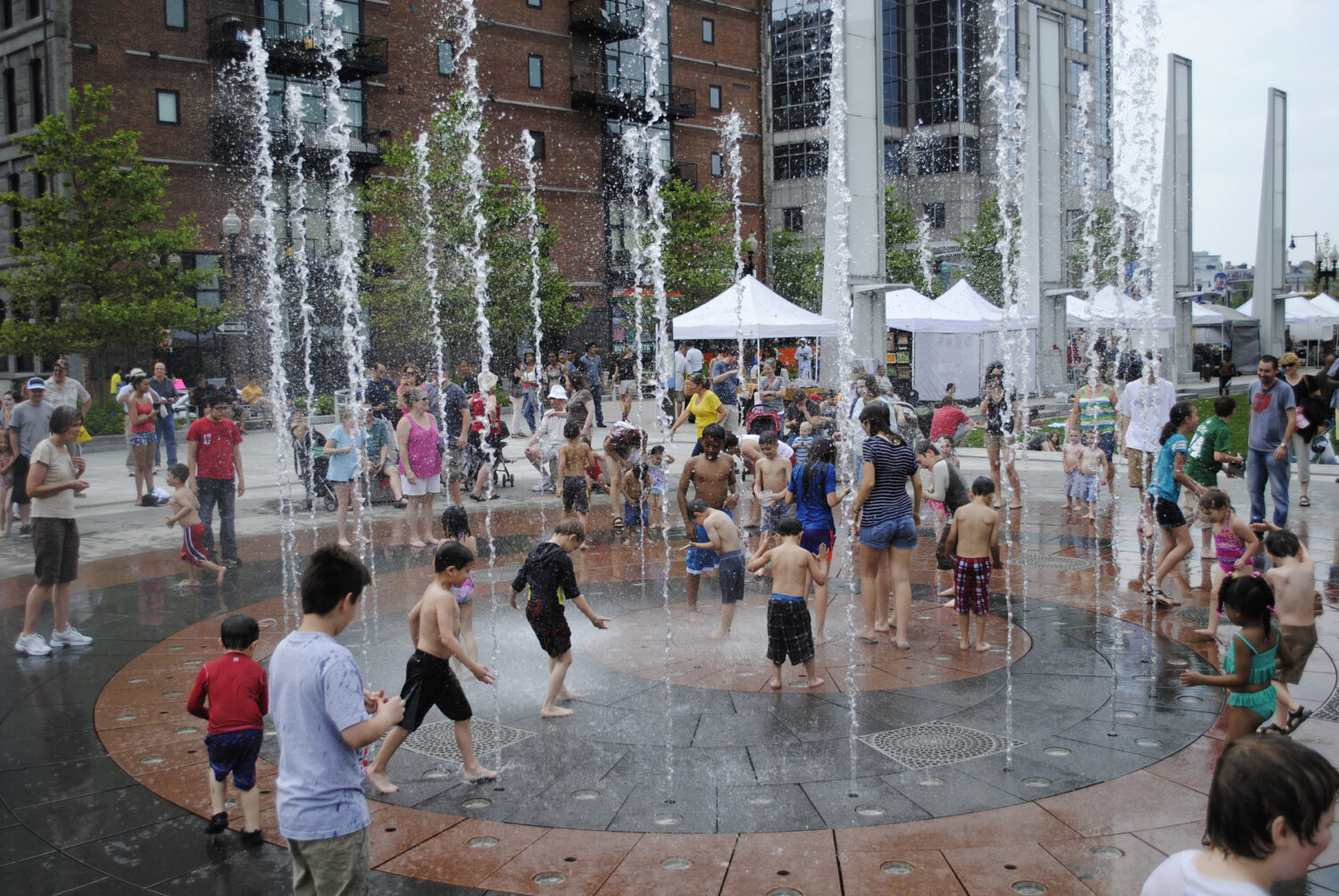One year ago this week, my colleagues and I shifted to remote work. As I reflect back on my own feelings at this time last year, I vividly recall two overriding sentiments that characterized those days in March 2020: the uncertainty of what might come next, and the fear about this deadly virus circulating in our midst. Despite the rapidly changing circumstances, we at the Barr Foundation knew we had to anchor ourselves on one driving principle: care and support of both our staff and grantee partners, all of whom were facing unprecedented challenges.
A year later, uncertainty and fear are giving way to clarity and hope: clarity that we will emerge from the COVID-19 pandemic and a sense of hope about the future that lies ahead. Today, a new idea has become central for us: as we physically return to our places of work, we must heed the lessons of the past year to reimagine this work, not to rebuild what was.
In a year that has resulted in enormous loss of life—with over 2.6 million global deaths from COVID-19—it is plainly evident to us that there can and should be no return to the way things were pre-pandemic. To confront structural racism, massive wealth inequality, power imbalances, and other obstacles to the equitable world we aspire to, we must understand our role, as a philanthropic institution, in how we got here. And, we must reimagine that role to move forward.
In response to the challenges of 2020, we shifted how we operate. We sought to more explicitly center the needs of our partners and make tangible Barr’s expanded commitment to racial equity. Today, I highlight four ways we are committed to building upon what we learned and the potential it has to make us a better partner. We hope others will share their lessons too:
We will continue grantmaking practices that enable us to respond flexibly and quickly to the needs of our partners.
As many funders have done during COVID-19, we offered flexibility to our partners in various ways to ensure they could direct resources to the highest needs as they saw them. We reoriented reporting to us in ways that minimize workload for our partners. Knowing the value of multi-year, general operating support, we converted many existing grants accordingly to support our partners during the pandemic. Many of these practices were put in place in response to COVID-19, but we intend to continue those changes that have served our grantees best.
We will prioritize trust and relationships over transactions and oversight.
Many of the shifts in practice we instituted this year invited us to relinquish control. This desire for control is so often at the heart of many of our policies and procedures as funders. While we want to believe that we had built productive and strong relationships with our grantees, this year encouraged us to test that, by trusting more, and by investing in leaders who understood the shifting needs and emerging demands of their communities in ways we could not. This was a year where building on relationships we had cultivated over time really mattered, and that only underscores these relational aspects of our work which must remain paramount.
We will center our work on racial equity.
Each of our program teams has spent significant time engaging with grantees and other partners to deepen their understanding of racial equity in their fields and the implications for our programs, specifically what we fund, who we fund, and how we fund. You will be hearing more in the coming months about what this means for our programs and Barr overall. We will also continue the necessary work of examining our own culture and practices as we explore more deeply what it means to be an anti-racist organization.
We will collaborate with other funders to align efforts and minimize the administrative burdens we create for nonprofits.
The value of doing so was most evident in the grantmaking efforts Barr undertook to respond to emergency needs created by COVID-19. As grantees mobilized to support their communities, numerous relief funds were launched, and funders sought to coordinate efforts to avoid duplication. Funders met with increasing frequency to share information, and many of us collaborated on grants in ways we had never done before. While this facilitated our own work, we also realized that there were many benefits for our partners: shared applications, unified reporting, and faster decision-making. Indeed, in some of this work funders went to grantees and asked them what they needed without waiting for them to come to us for support. There is every reason to continue this approach.
These are just a few of the lessons we will carry forward, acknowledging we are a work in progress with much more to learn. To that end, we are committed to listening to our partners, to understanding their needs, and to being open to change, where new ways of working will serve them better.
On this sobering anniversary of events that set in motion an unprecedented year, what has most heartened and bolstered me has been the tireless and persistent dedication of our partners. We have watched organizations pivot and adapt. We have witnessed new alliances and coalitions emerge. We have been inspired by the tenacity and clear-eyed commitment of so many leaders. Their work has been a lifeline to communities hit hard by the pandemic.
I also know from my own conversations with many of these leaders just how tired and overwhelmed they have been, feeling that their only choice was to lean in, to do more, and to rise to new obligations. If nothing else, we as funders owe it to them to interrogate how we can be better partners, emerging from this experience more attuned to their needs, more invested in their success, and more prepared to relinquish control and share power.
This is how we will best honor the sacrifices so many have made to ensure our communities could see their way through all of the fear and uncertainty to today, as hope springs anew.
